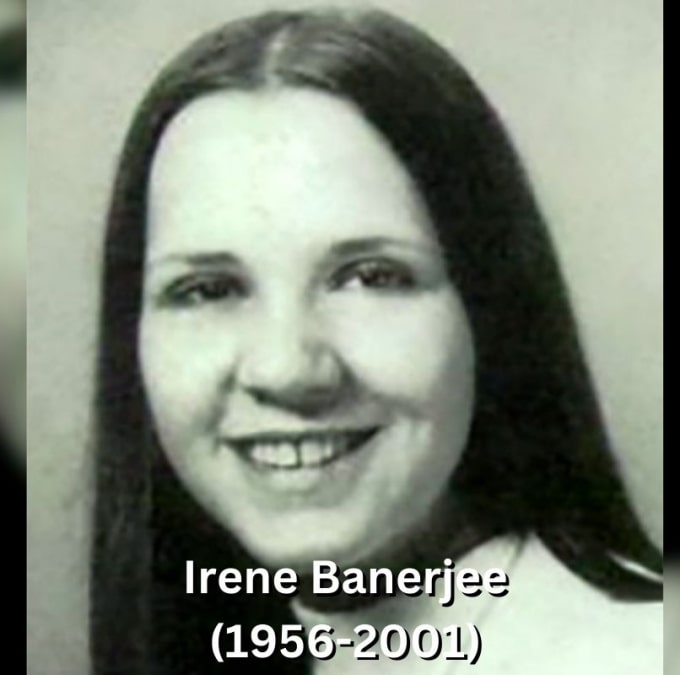Robert Mugge has made a name for himself in the mesmerizing realm of music documentaries. Over the past four decades, he has built a legacy through his insightful and poignant portrayals of musicians and their craft. Born on May 8, 1950, in Chicago, Illinois, Mugge's creative journey has led him across the United States, from Silver Spring, Maryland, to Philadelphia, Pennsylvania, and beyond.
Quick Info Table
| Field | Details |
|---|---|
| Full Name | Robert Mugge |
| Popular As | Documentary Filmmaker |
| Occupations | Filmmaker, Professor |
| Age (as of 2024) | 74 years |
| Date of Birth | May 8, 1950 |
| Birthplace | Chicago, Illinois |
| Nationality | American |
| Spouse | Diana Zelman |
| Net Worth (2024) | Estimated $2 Million |
| Parents | Robert H. Mugge, Elizabeth Mugge (née Messersmith) |
| Education | Frostburg State University, UMBC |
Early Life
Robert Mugge's formative years set the stage for his distinguished career. Living in various cities before finally settling in Silver Spring, Maryland, Mugge's exposure to diverse cultures and experiences significantly shaped his artistic vision.
Childhood and Family Background
Robert Mugge was born to Robert H. Mugge, a sociologist, and Elizabeth Mugge (née Messersmith). His father's academic background and his mother's nurturing influence fostered a stimulating environment for young Robert. After moving to Silver Spring in 1959, Mugge’s formative years were marked by a deep curiosity and a budding passion for storytelling.
Education and Early Interests
Mugge pursued higher education at Frostburg State University and later at the University of Maryland, Baltimore County (UMBC). During his time at UMBC, he directed his first documentary, "Frostburg," in 1972. This initial venture into filmmaking paved the way for a career that would see Mugge become a key figure in the world of music documentaries.
Career Highlights
Robert Mugge's career is a testament to his dedication to capturing the essence of music and its creators. His documentaries offer an intimate look at the lives and works of some of the most influential musicians of our time.
Breakthrough with "George Crumb: Voice of the Whale"
In 1976, Mugge directed "George Crumb: Voice of the Whale," a documentary about the Pulitzer Prize-winning composer George Crumb. This film garnered significant attention and established Mugge as a filmmaker with a unique ability to delve into the intricacies of music and its impact on society.
Collaborations and Notable Projects
Mugge's career is packed with numerous collaborations with renowned musicians and funding from prestigious organizations. His partnership with Channel 4 Television and BMG Video facilitated the production of several iconic documentaries. Some of his most notable works include:
- "Sun Ra: A Joyful Noise" (1980): A captivating portrait of the avant-garde jazz musician Sun Ra.
- "Gil Scott-Heron: Black Wax" (1982): A powerful exploration of the poet-singer-songwriter's influence on contemporary music and culture.
- "The Gospel According to Al Green" (1984): An intimate look at the soul singer and gospel preacher Al Green.
These documentaries not only showcased Mugge's storytelling prowess but also highlighted his ability to connect with his subjects on a profound level.
Teaching and Mentorship
From 2009 to 2014, Mugge served as a professor at Ball State University, where he mentored aspiring filmmakers and shared his vast knowledge of documentary filmmaking. His tenure at the university was marked by a commitment to nurturing the next generation of storytellers.
Personal Life
Away from the camera, Robert Mugge's personal life is just as fascinating. His relationship with his production partner and wife, Diana Zelman, has been a cornerstone of his career, providing both creative collaboration and personal support.
Marriage to Diana Zelman
Since 2005, Mugge has closely collaborated with his wife, Diana Zelman. Their partnership has resulted in several acclaimed projects, showcasing their shared passion for storytelling and music. Zelman’s contributions as a producer have been instrumental in bringing Mugge’s visions to life.
Life in Philadelphia and Beyond
Mugge spent many years living and working in Philadelphia, Pennsylvania, a city known for its rich musical heritage. This vibrant environment provided ample inspiration for his projects. Currently, Mugge and Zelman continue to explore new stories and musical landscapes, driven by their enduring love for the art of documentary filmmaking.
Major Achievements
Robert Mugge’s career is adorned with numerous accolades and milestones that underscore his impact on the documentary genre. His ability to capture the essence of music and its creators has earned him a revered place in the annals of film history.
Awards and Recognitions
Mugge’s documentaries have received critical acclaim and several awards over the years. His film "Deep Blues" (1992), which explores the roots of blues music in Mississippi, was particularly well-received and remains a seminal work in his oeuvre.
Influence on Music Documentaries
Mugge’s influence extends beyond his individual films. He has played a significant role in shaping the genre of music documentaries, inspiring countless filmmakers to explore the rich tapestry of musical history and culture. His work continues to be a touchstone for those seeking to understand the profound connection between music and society.
Financial Insights
Understanding the financial success of a filmmaker like Robert Mugge requires a look at both his earnings from film projects and his academic career. While exact figures can be elusive, we can provide an informed estimate based on available data.
Net Worth and Earnings
As of 2024, Robert Mugge’s estimated net worth is around $2 million. This figure encompasses his earnings from numerous documentaries, teaching positions, and collaborations with organizations such as Channel 4 Television and BMG Video.
Funding and Grants
Mugge’s projects have often received funding from prestigious institutions. The National Endowment for the Humanities, for instance, has supported several of his early works. These grants not only provided financial backing but also lent credibility to his projects, enabling him to attract further funding and distribution deals.
Financial Success of Notable Films
Films like "Deep Blues" and "The Gospel According to Al Green" have significantly contributed to Mugge’s financial success. These documentaries have enjoyed both critical acclaim and commercial success, solidifying Mugge’s reputation and financial stability in the industry.
Conclusion
Robert Mugge’s journey as a filmmaker is a testament to his unwavering dedication to the art of documentary filmmaking. His ability to weave compelling narratives around music and its creators has left an indelible mark on the genre. As Mugge continues to explore new stories and musical landscapes, his legacy as a maestro of music documentaries remains firmly intact.
FAQ Section
Who is Robert Mugge?
Robert Mugge is an American documentary filmmaker known for his music-related films. He has directed numerous documentaries over a career spanning more than four decades.
What are some of Robert Mugge's most famous documentaries?
Some of Mugge’s most notable documentaries include "Sun Ra: A Joyful Noise," "Gil Scott-Heron: Black Wax," and "The Gospel According to Al Green."
Who is Diana Zelman?
Diana Zelman is Robert Mugge’s wife and production partner. They have collaborated on several projects since 2005.
What is Robert Mugge's net worth?
As of 2024, Robert Mugge’s estimated net worth is around $2 million.
Where did Robert Mugge teach filmmaking?
Robert Mugge served as a professor at Ball State University from 2009 to 2014, where he mentored aspiring filmmakers.
How has Robert Mugge influenced the genre of music documentaries?
Robert Mugge has significantly influenced the genre of music documentaries through his in-depth and evocative portrayals of musicians and their art. His work continues to inspire filmmakers and audiences alike.













